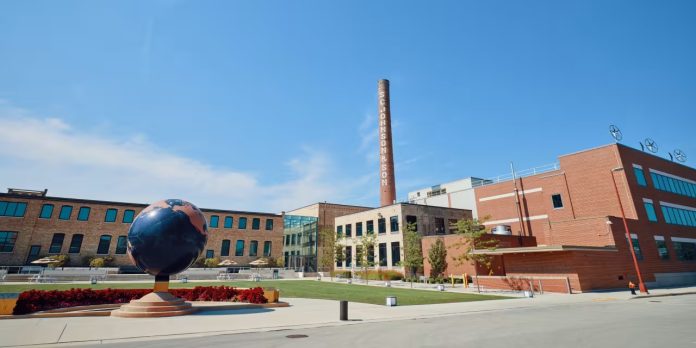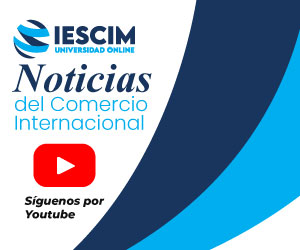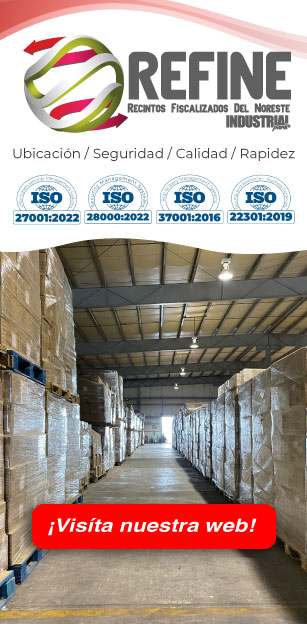Billionaire Fisk Johnson has embarked on a crusade to contain the plastic waste crisis.
He has practiced diving among columns of plastic mud. It has funded research into how microplastics are harmful to human health. And he has traveled to Congress to request regulations that give consumer goods companies the responsibility to recycle the plastic waste their products generate.
Companies like yours.
For 20 years, Johnson has led one of the world’s largest consumer companies and a major manufacturer of plastic packaged products. The 66-year-old is the fifth-generation leader of the family-owned SC Johnson business, which makes Ziploc bags, Mrs. Meyer’s Clean Day soaps and Windex cleaners.
“On the one hand, I see plastic as one of the most useful, versatile and cost-effective materials developed in the last century,” Johnson testified at a Senate committee hearing in March. ‘On the other hand, as a lifelong conservationist, I have also seen how plastic has become one of the most profound emerging global pollutants that is affecting planetary, animal and human health.’
That paradox is one of the most challenging questions facing business leaders: How to balance the tide of consumerism with growing environmental concerns? Are consumers willing to pay more and change the way they get soap, cleaning products and food to dramatically reduce plastic waste?
Some consumer packaged goods industry executives question SC Johnson’s commitment to better environmental practices. They say SC Johnson still relies on plastic to package many of its products, and single-use plastic films like Ziplocs are not commonly recycled.
According to the United Nations Environment Programme, about 40% of the millions of tons of plastic produced in the world are used in packaging, and 85% of that plastic ends up in landfills.
Johnson says he has introduced sustainable packaging, including Windex bottles made from recovered coastal plastic, but says regulations and tariffs on companies that use plastics are needed so companies like his can remain competitive. Johnson says alternatives like glass can be expensive, fragile and leave a larger carbon footprint. SC Johnson also makes Ziplocs made of silicone and compostable versions.
‘The traditional Ziploc bag is a single-use plastic, there are no two ways about it,’ he said in an interview in the company’s ‘Great Workroom,’ a large space dotted with workbenches inside the red-hued headquarters. designed by Frank Lloyd. Wright. “You could say, okay, well, single-use plastics are a terrible business and we should get out of it. But someone else who has less good intentions will simply accept it. It is a free market. My argument is that it better be in our hands because we are trying hard to make changes.”
A CEO with the sensibility of a scientist: Johnson has five degrees from Cornell University in Ithaca, New York, including an MBA and a Ph.D. in applied physics: He has long conversations with scientists and is more excited to talk about polymers than profits.
Forbes estimates his personal worth at $5 billion, and the company generates about $11 billion in annual revenue.
His usual attire is a light blue shirt with khaki pants, sneakers, and a black Columbia fleece jacket.
‘At the end of the day, he’s a scientist and a nerd, and his friends love him for it,’ says Steve Culbertson, brother of the Chi Psi fraternity. ‘Sometimes it seemed like I would never leave Ithaca.’
Johnson introduced diving to Culbertson, now executive director of the nonprofit Youth Service America. During a 2021 trip to the Cocos Islands off Costa Rica, Culbertson remembers Johnson taking off from the dive to collect samples for microplastic research and analysis. In the evening, Johnson took out his microscope and analyzed samples, showing them to the ship’s local crew and discussing the effect of microplastic pollution.
Even before Johnson took over as CEO in 2004, SC Johnson had been trying to address the problem of plastic waste. It was one of the first companies to launch a bottle made from recycled plastic, in 1990. And over the last decade, it has launched different versions of “reuse and refill” packaging, including a concentrated version of Windex. But those products were not successful. People didn’t buy them on a scale that would make a significant difference in addressing plastic waste problems, Johnson said.
‘We keep hitting walls,’ Johnson said. ‘I look back at what we’ve done with plastics: we’ve worked hard, but I can’t say I’m proud of the progress we’ve made.’
Johnson has focused his efforts on fighting for legislation, becoming a regular presence at symposiums and government meetings to push for change. He points to tariffs on plastics and packaging in British Columbia, Canada, which funded collection efforts and boosted recycling rates.
Johnson is operating in a more accepting environment than his predecessors. His father, Sam Johnson, shocked the industry when he announced in 1975 that the company would eliminate contaminating chlorofluorocarbons from its aerosol products. During a speech in which Sam Johnson announced the change, the head of a chemical company stood up and told Johnson that he was ruining the industry.
The younger Johnson says today that other companies in the Consumer Goods Forum, such as PepsiCo, Unilever and Walmart, are also working on this issue.
More than a decade ago, Johnson built a team that reported directly to him and focused on addressing global health issues. It was funded in part by 5% of pre-tax profits that the company committed to giving back to its communities. Today, the unit has performance metrics that include people affected and lives saved.
The team has spent $100 million developing a nonprofit space mosquito repellent that can be hung indoors; A study in Indonesia showed that it reduced malaria infection rates for the first time by 28%.
Johnson makes time at town meetings to provide life updates, including about her daughter, who is training to be a wildlife conservation veterinarian. He says he has no plans to retire anytime soon and hopes two nieces who work at the company can eventually take over. (One runs the company’s business in Canada.)
Johnson tells the story of a month-long trip he and his brother took with their father, Sam, in 1998, recreating a trip Sam’s father had taken in 1935. They ordered a replica airplane and flew from Racine to Fortaleza, Brazil.
On the trip, Sam “bared his soul” about the difficult relationship he had had with his father, who yelled at him and told him he was worthless, Fisk recalls. The lesson Sam learned from his upbringing was that it was more important to live up to his children’s expectations than his father’s.
Fisk Johnson says that’s his goal, too.
Source: https://www.wsj.com/business/fisk-johnson-ziploc-anti-plastic-1c1992a6?mod=djemlogistics_h





